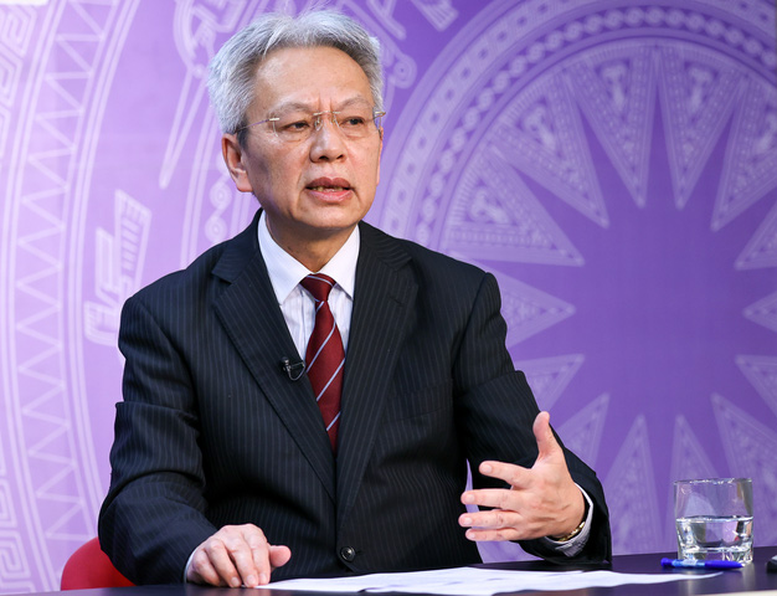 |
| Dr. Nguyen Si Dung stated that Resolution 71 affirms that education is the decisive factor in the destiny of the nation. (Source: VGP) |
One morning in the highlands, in a classroom with a rickety fibro roof, the children sat crowded on simple wooden chairs. Their eyes sparkled as they listened to the teacher explain numbers and letters. Looking at them, we could clearly see the burning desire to change their lives. From such a poor classroom, the destiny of an entire nation could begin.
Therefore, on August 22, 2025, the Politburo issued Resolution No. 71-NQ/TW (Resolution 71) on breakthroughs in education and training development, affirming that education and training are not only the top national policy, but also the "decisive factor in the destiny of the nation". This is not only a document, but also a call to arms, placing education in the supreme position in the journey to a strong Vietnam.
New context and requirements
Vietnam is entering a pivotal stage of development. To realize the aspiration of becoming a developed, high-income country by 2045, we need high-quality human resources with creative capacity and global integration skills.
Meanwhile, the world is witnessing unprecedented changes: Industrial Revolution 4.0, artificial intelligence, digital transformation, climate change, global talent competition. Natural resources are gradually depleted, only human resources are endless. Whoever masters knowledge, technology, and talent will master the future.
Vietnam's educational practice has achieved many successes: Universalization, raising people's knowledge, international integration, winning high prizes in international competitions. However, there are still many limitations such as deep regional differences, heavy pressure of exams, lack of facilities, and uneven teaching staff. A part of students still study for exams, not to learn to be human, to be creative. It is in that context that Resolution 71 was born with the spirit of not only improving techniques, but also breaking through institutions, renewing thinking, and creating outstanding mechanisms.
Breakthrough from innovation in thinking and institutions
Resolution 71 establishes a long-term strategic vision for Vietnamese education, with clear milestones: By 2030, preschool and general education must reach an advanced level in the region, while training human resources capable of meeting the increasingly stringent requirements of society and the economy. By 2035, the national education system must be modernized in structure, content and methods, ensuring fairness in access and improving comprehensive quality. The ultimate goal is 2045, when Vietnam completes a century of independence, there will be a modern, equitable, high-quality education system, capable of bringing the country into the group of about 20 leading countries in the world in education.
| "Resolution 71 is not only a political document, but also a strategic blueprint for national education. It affirms a truth: Without a strong education system, there can be no strong nation. Every family, every teacher, every student, every citizen has a role to play in this work." |
To realize that vision, the Resolution affirms the fundamental guiding viewpoints. Learners are considered the center of all educational activities; teachers are the driving force for change; schools are the foundation for creating knowledge and values. The State plays a role in guiding and creating institutions, but the cause of education is not only the responsibility of the State but requires the cooperation of the whole society.
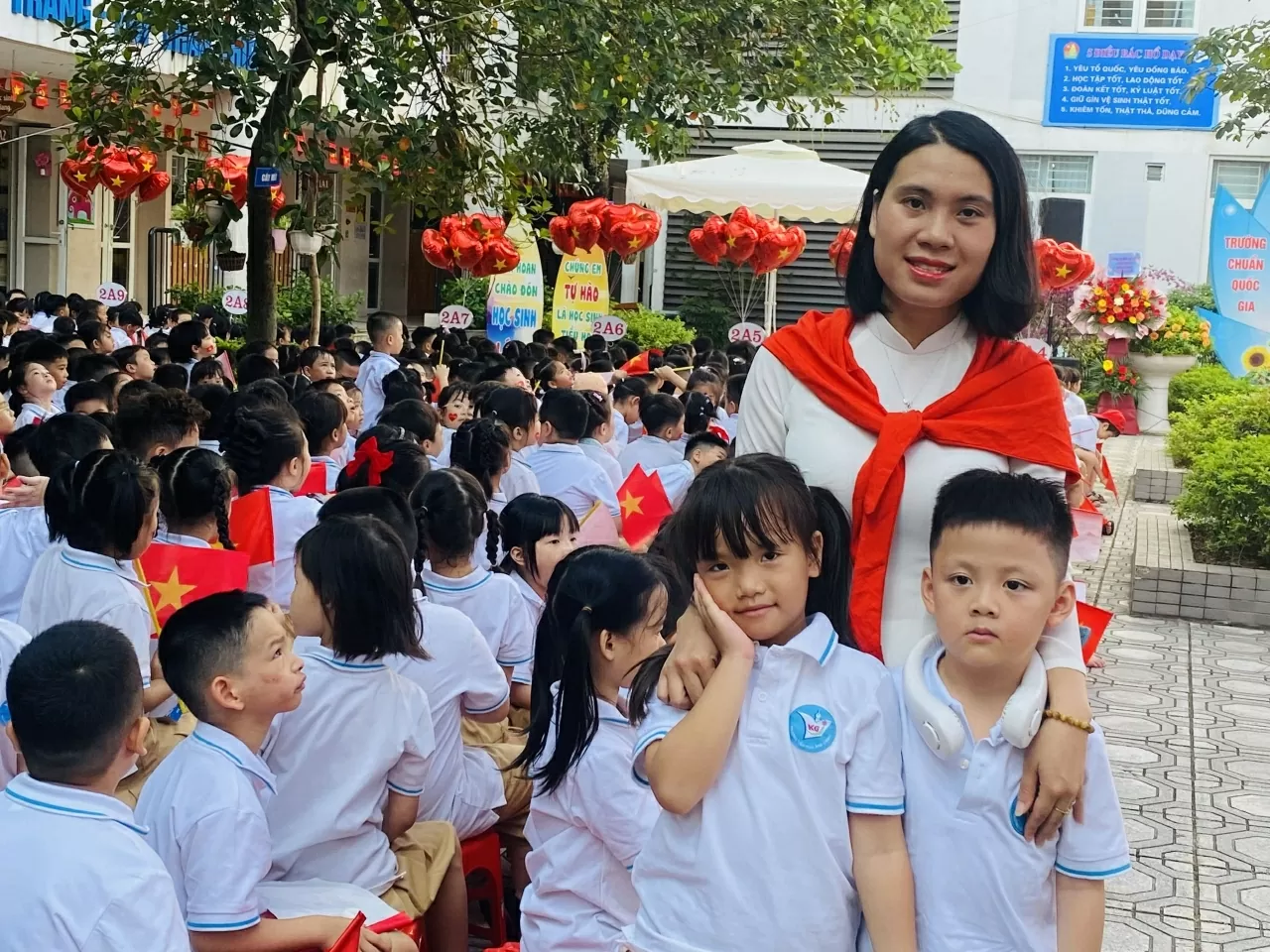 |
| Teacher Than Phuong Quyen and first grade students of Kim Giang Primary School (Khuong Dinh Ward, Hanoi) on the opening day of school. (Photo: Nguyet Anh) |
In particular, innovation in thinking and institutions is considered a breakthrough, because only strong reforms in mechanisms and policies can create new development space for education. The Resolution also emphasizes the goal of building a comprehensive education system: Morality - Intelligence - Fitness - Aesthetics, aiming to form a system of values for Vietnamese people in the new era, both bearing national identity and having the capacity to integrate internationally.
From that vision and guiding perspective, Resolution 71 proposes many specific, breakthrough policies that can create changes right from the most essential stages. For example, the policy of vocational allowances for teachers, with a minimum of 70% for preschool and primary school teachers, 30% for school staff, 100% for teachers in particularly difficult areas, not only improves income but also sends a strong message: Society respects and promotes the teaching profession.
The roadmap to apply a unified set of textbooks from the 2026-2027 school year, moving towards free textbooks for all students by 2030, demonstrates the determination to ensure fairness in access to knowledge and reduce the burden on parents. Along with that, the policy of strengthening foreign language teaching and learning, aiming to make English a second language, aims to open the door to integration for the younger generation.
| "In the 2045 aspiration, each student today is a seed of the future, and each teacher is the one who sows the seeds of the nation's destiny. Investing in education is the most profitable investment, the most certain 'insurance' for the nation's longevity and development." |
In particular, the Resolution emphasizes the innovation of examination methods in the direction of applying modern technology: Organizing exams on computers, building a national education and human resources data system connected with the labor market.
This will help reduce pressure, increase transparency, and create a real connection between training and use. The entire innovation process is based on a comprehensive digital transformation platform, with the extensive application of artificial intelligence in management and teaching. This is a big step forward, bringing Vietnamese education closer to the world, while preparing new generation citizens with the ability to adapt in the digital age.
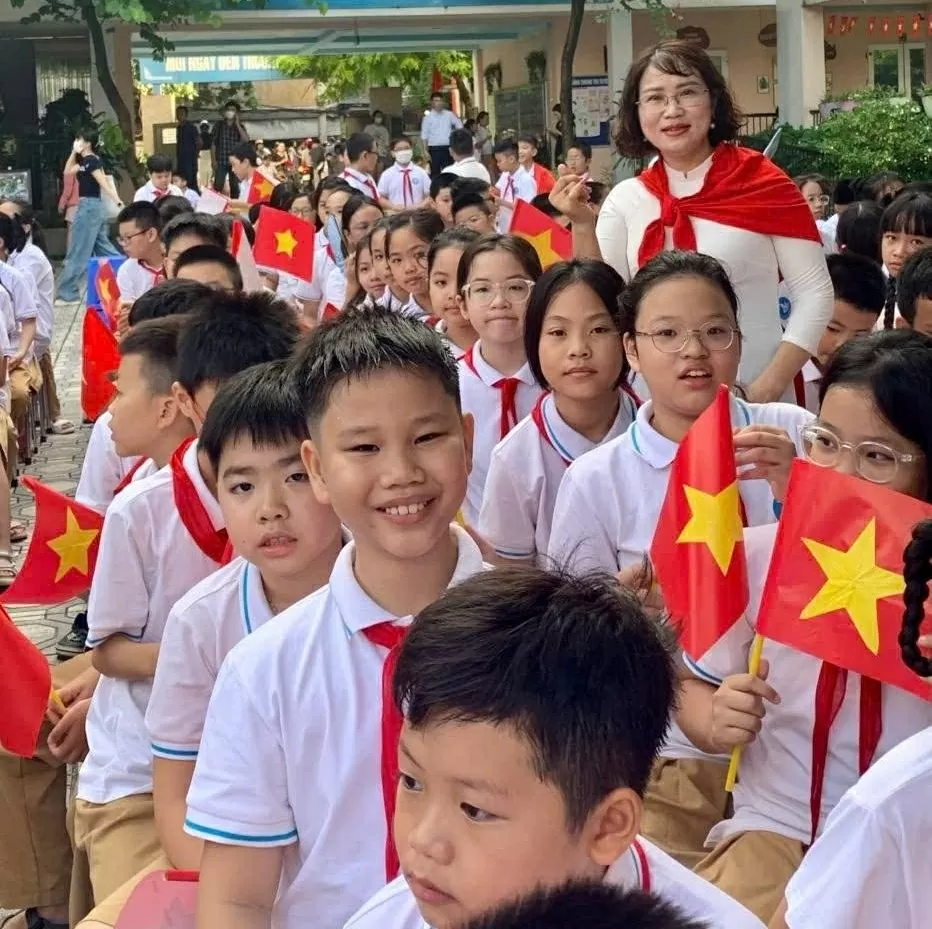 |
| Resolution 71 emphasizes that learners are considered the center of all educational activities; teachers are the driving force for change. (Photo: Pham Thanh Thuy) |
Resolution 71 has strategic significance in that it has elevated education from the position of “top national policy” as affirmed in Resolution 29 (2013), to “the decisive factor in the destiny of the nation”. This change is not simply a way of expression, but reflects a major step forward in development thinking: A strong Vietnam can only be built on the foundation of a strong education system, where people are placed at the center of all policies.
In the 2045 aspiration, each student today is a seed of the future, and each teacher is the one who sows the seeds of the nation's destiny. Investing in education is the most profitable investment, the most certain "insurance" for the nation's longevity and development. Not only stopping at the domestic scope, the Resolution also opens the door to international integration: when English becomes the second language, when exams are organized on transparent and modern computers, when educational and human resource data are directly connected to the global labor market, the young generation of Vietnam will have enough luggage to confidently stand shoulder to shoulder with friends from all over the world.
| "Education is no longer the sole responsibility of schools, but the common mission of the entire nation." |
In order for Resolution 71 to come into effect and create real change, it is necessary to overcome many challenges and meet all the necessary conditions. First of all, investment resources: The budget for education already accounts for a large proportion, but if it is not allocated transparently, effectively and without waste, it will be difficult to create fundamental changes. Along with that, the teaching staff needs to be placed at the center of reform, with policies to attract talent, retrain and regularly foster so that the motto "teachers are teachers, students are students" can truly become a reality.
Another indispensable condition is infrastructure and technology: Not only in big cities but also in remote areas, there must be access to equipment, the Internet and digital infrastructure, otherwise the inequality gap will widen.
In terms of institutions and policies, reforms must be strong enough to overcome the situation of “legalization by official dispatch”, ensuring stability, feasibility and consistency, creating a favorable legal environment for creativity. More importantly, there must be a change in social thinking: Education must shift from chasing scores to developing capacity and qualities, from education for examinations to education for creativity. Only by synchronously solving these challenges can Vietnamese education fully fulfill the mission set out in Resolution 71.
Finally, Resolution 71 is not only a political document, but also a strategic blueprint for national education. It affirms a truth: Without a strong education system, there can be no strong nation. Every family, every teacher, every student, every citizen has a role to play in this work. Education is no longer the sole responsibility of schools, but the common mission of the entire nation.
At the National Conference to disseminate and implement the 4 Resolutions of the Politburo, General Secretary To Lam emphasized: Regarding Resolution 71: Clearly identify education and training as the top national policy, the key driving force for national development. Investing in education is investing, cultivating, and enhancing the "national spirit", is investing in the future of the nation. This is the key field of all keys, the fundamental driving force for increasing productivity, breaking through national competitiveness, and nurturing the desire for development. Education and training follow the motto "Taking quality as the axis - taking teachers as the key - taking technology as the lever." Regarding solutions, there are 8 main groups. First, build national output standards by education level and profession; implement mandatory accreditation, and public rankings with missions. Second, innovate programs and assessments, reduce achievement disease, combat widespread extra tutoring; implement standardized assessments, focusing on core skills. Third, breakthrough in the teaching staff: new professional standards, performance-linked incentives, scholarships to attract teachers, training numbers, ensuring ethics and honor of teachers. Fourth, promote university autonomy coupled with accountability; co-create programs with businesses; increase paid internships; and build innovation centers. Fifth, upgrading vocational education linked to the supply chain, real learning - real work following the dual model; recognizing digital skills certificates; assessment by businesses. Sixth, digital transformation in education: national open learning materials, lifelong electronic learning records, secure examination platforms, ensuring data security. Seventh, targeted education finance: focus on supporting vulnerable groups with appropriate solutions (not favoritism); skill development fund, training ordering mechanism according to regional and industry needs. Eight, internationalization: credit recognition, joint programs, attracting international experts, raising foreign language standards by industry. |
Source: https://baoquocte.vn/van-hoi-moi-cua-nganh-giao-duc-bai-cuoi-loi-hieu-trieu-trong-hanh-trinh-di-toi-mot-viet-nam-hung-cuong-328157.html






![[Photo] "Ship graveyard" on Xuan Dai Bay](https://vphoto.vietnam.vn/thumb/1200x675/vietnam/resource/IMAGE/2025/11/08/1762577162805_ndo_br_tb5-jpg.webp)







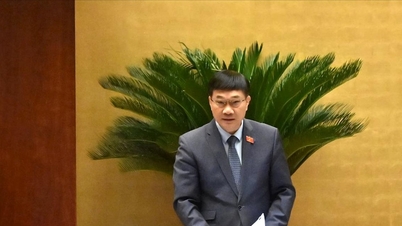





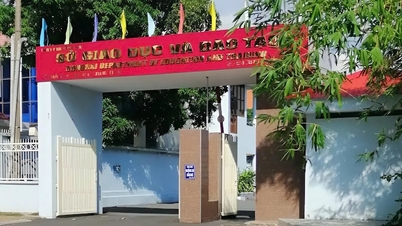







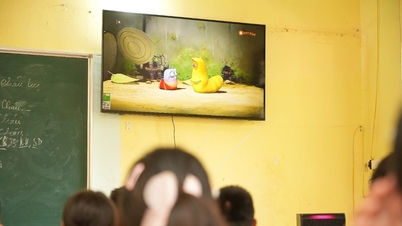




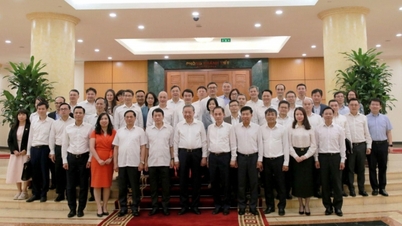
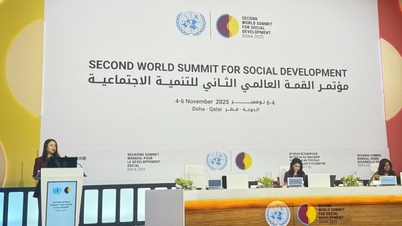

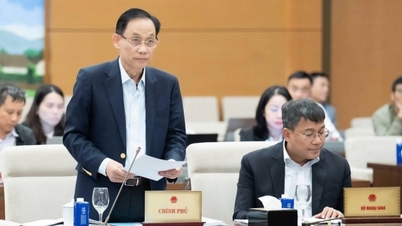
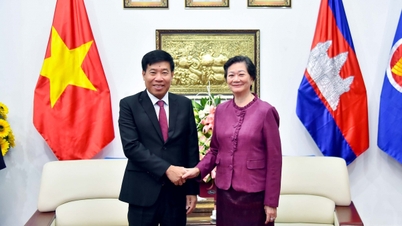
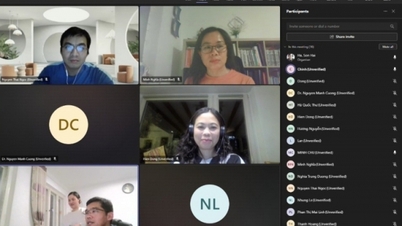


![[Video] Hue Monuments reopen to welcome visitors](https://vphoto.vietnam.vn/thumb/402x226/vietnam/resource/IMAGE/2025/11/05/1762301089171_dung01-05-43-09still013-jpg.webp)
































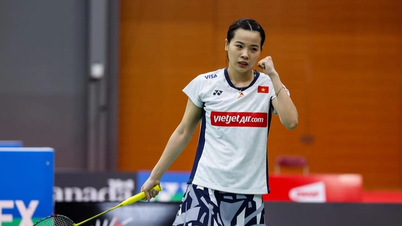


















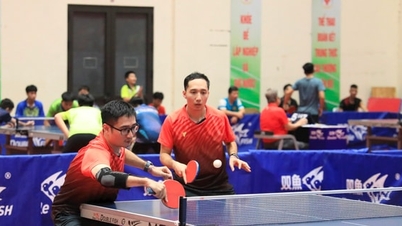


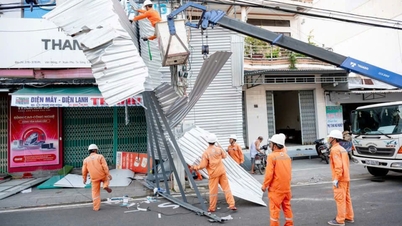















Comment (0)